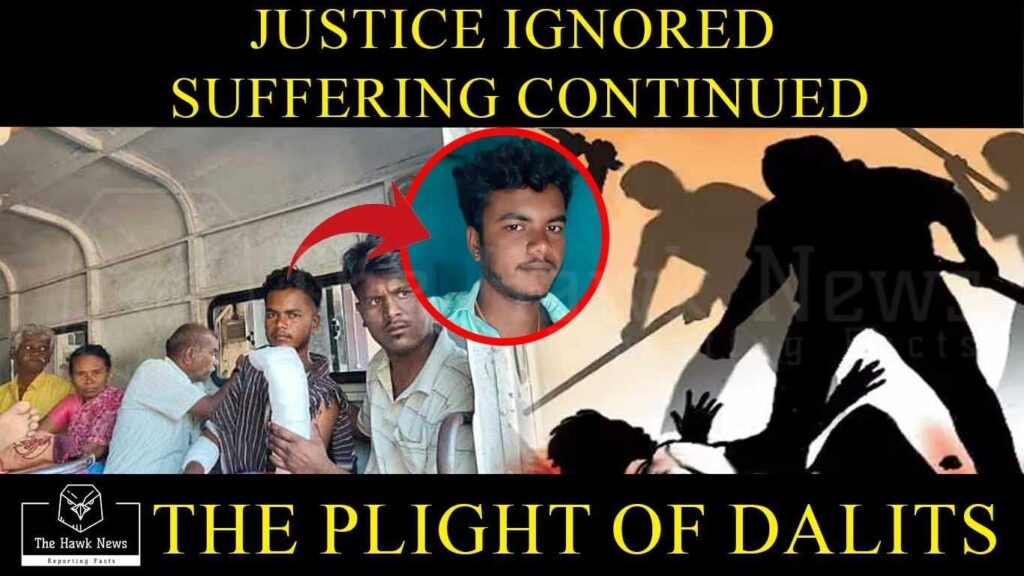
Caste discriminatory violence remains a severe difficult in India, especially in Tamil Nadu. Where caste plays a pivotal role is affecting the livelihood and other of the people. A latest incident in Tirunelveli district explains the impact of the going caste issue, here on March 10,2025 Devandran, a 11th grade Dalit student was forcefully attacked by three men from the dominant community. They passed the moving bus, pushed him out of the bus, and chop many fingers form his left hand. His father, Thanga Ganesh, tried to protect him he also aggressively attacked suffering from severe head injury. Ongoing tragic incident once again shows the persistent discrimination and violence caused by caste divisions in Tamil Nadu.
Motive Behind the Attack:
Devendran’s family believes the attack was planned in advance as revenge for a Kabaddi match. In a recent game, Devendran’s team, made up of Dalit players, defeated a team of dominant caste players. Unable to accept the loss, the dominant caste men saw it as a challenge to their authority. Instead of treating it as a normal part of sportsmanship, they resorted to brutal violence to assert their dominance and remind Devendran of his place in the caste system.
Repeated Caste-Based Crimes:
Such caste-driven vengeance is not unusual in Tamil Nadu. Dalit progress in sports, education, and economic mobility is often met with opposition from dominant caste groups, who fears about their community. Devendran’s attack is not a new incident, similar cases have occurred where Dalits are assaulted to claim their self-request and dignity among dominant caste
Sivaganga Incident (February 2025):
A Dalit college student, Ayyasamy, was attacked by three caste Hindu men for riding a Bullet motorcycle, which they saw as a status symbol Dalits shouldn’t own. The assailants used sharp weapons, severely injuring his hands.
Ongoing Incidents:
In many parts of Tamil Nadu, Dalits face discrimination, including being barred from temples, restricted from wearing new clothes, and prohibited from riding horses at their weddings. Dominant caste groups continue to suppress their basic rights.
Why These Attacks Keep Happening?
Even though legal protections such as the Scheduled Castes and Scheduled Tribes (Prevention of Atrocities) Act, 1989, caste-based conflict rages on. There are several reasons for this:
- Dominant Caste Supremacy:
Many dominant caste groups do not accept the progress of Dalits in education, sports, and jobs. When Dalits try to improve their lives, these groups feel threatened and react with violence. - Weak Law Enforcement:
Even when Dalits file complaints, police and legal authorities often ignore them or delay action. In some cases, they even twist the case to protect the dominant caste attackers. - Fear and Intimidation:
Many Dalits are afraid to report crimes, fearing backlash from dominant caste groups. In some villages, entire Dalit communities are denied justice, causing deep fear and mental stress.
Moving forward; To prevent such atrocities, urgent steps must be taken:
- Strict Law Enforcement:
Law must be severe and the attackers should be arrested and they should face immediate consequence to establish a right to Dalits. Case should be done in a speed way where it should not be delayed or postponed in any reason.
- Awareness and Education:
Schools and colleges should promote caste equality and inclusivity in sports and education. Awareness about caste system must become a subject and should give a proper frame work about the caste system.
- Support for Victims:
Counselling and legal support should be given to affected families. The government should provide financial and medical aid to victims like Devendran and Ayyasamy.
Summation: Caste-based violence is remains a serious problem in Tamil Nadu, taking away Dalits’ dignity and rights. Even though there are laws to protect Dalits, dominant caste power and weak law enforcement allow this violence to continue. Proper and strong legal action, strict enforcement, and better awareness are need to be given to remove this injustice. Society must stand against caste discrimination and work for real equality. Only by working together can we create a future where no one is harmed because of their caste.